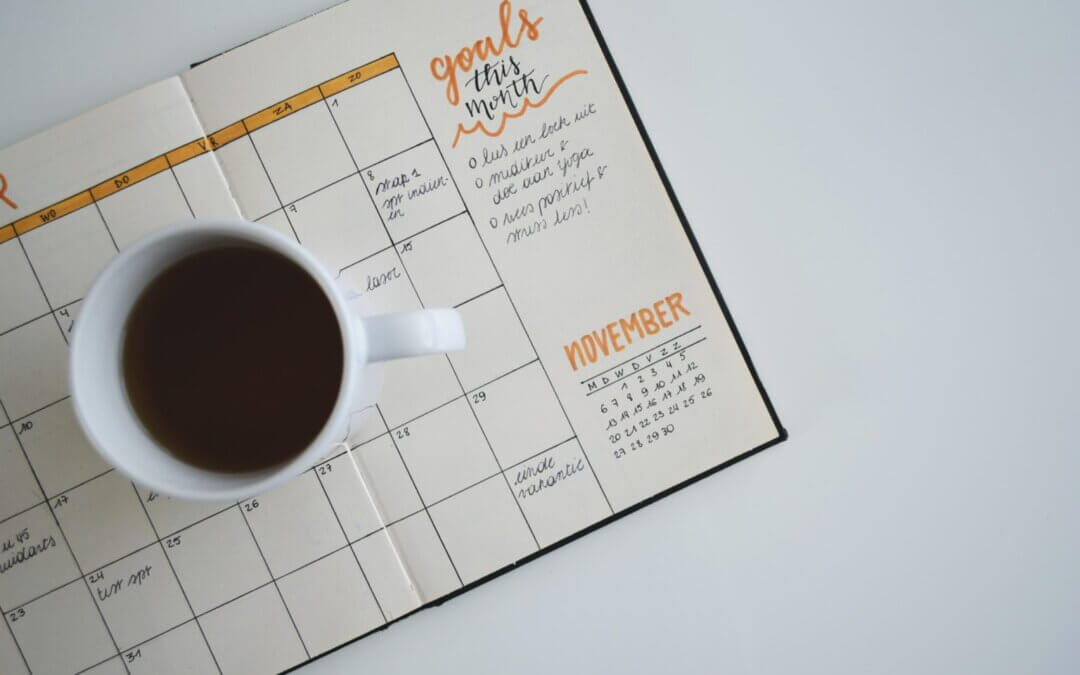Welcoming a new healthy habit into your life takes work and is often met with resistance and uncomfortable change. You’re not alone if you feel like you’ve hit a dead end. Behavior change uncovers a lot of emotions, stressors and feelings of shame and doubt. That is why creating small habits and implementing them consistently day after day until the habit becomes second nature is the path to long-term success. Easier said than done, because pursuing what most people call a goal involves doing something different than what has been done before1. To support this transformation, dietitians and nutritionists in nutrition counseling use a common behavior change technique to create goals for their patients that are specific, measurable, achievable, realistic and timely, also known as SMART goals. SMART goals have their place in building healthy habits because they identify the specific steps you will take to achieve this goal. But, in order to ensure these goals are sustainable for the long-term, there are few things you need to do first. Below are some tips on how to intentionally prepare for building healthy habits that will actually last.
Identify Your Why
How you frame the intention behind your goal for a new healthy habit is important(1). It’s critical to become clear on your why before getting started. You are here to create healthy habits that become a long-term lifestyle. If you want the new habit to be part of your every day, it must be something you want and are prioritizing it over all other goals. So, what is behind your personal desire to eat more vegetables, workout every day or lose weight? Spoiler alert: it probably has nothing to do with the number on the scale. Maybe it’s having more energy to play with your kids or grandkids, being able to get up off the floor with your toddler with more ease, living an engaged and active retirement, not feeling winded when you take the stairs, showing up more fully in life, living to see your grandchild’s wedding, or even being able to join your friends on a walking cruise. What’s your why?
Choose Your Words Wisely
It’s been proven that the language we use to describe our choices either influences or discourages our goal-related behaviors. Specifically, saying the phrase “I don’t” vs. “I can’t”, is more motivating when forming a new habit(5). Examples include “I don’t drink during the week”, instead of “I can’t drink during the week”, or “I don’t eat sugary snacks” versus “I can’t eat sugary snacks”. The small language shift gives you back the power and turns your new healthy habits into a choice you’ve made rather than something you’re secretly forcing yourself to do. Soon you’ll find yourself naturally making that healthier choice.
Find an Accountability Buddy
You don’t have to do this alone. According to a study in the Journal of Applied Psychology, an individual’s chance of reaching a goal increases when they share it with someone who’s working towards a similar goal(3). Find someone in your community or join a social media challenge of people who are like-minded and also working towards building healthy habits.
Be Flexible & Kind
It’s close to impossible to achieve your goals when there’s constant negative self-talk happening around you (most likely coming from inside your head!). It takes an average of 5 to 254 days to truly form a new habit(4). Remember this is your journey and a process, so keep looking ahead of you, not behind you. Life happens, so be gentle and kind to yourself. If you find that you need to switch things up or go in a different direction, respect all the progress you’ve made and acknowledge that you’ve chosen a different path, but it’s towards the same goal.
Remember What This Is About
Do you feel like you’re constantly showing up for others, but forgetting to show up for yourself? It’s time to move yourself up to the forefront and stop putting yourself last. Remember: this is about YOU now. Take time to customize this for experience so that it works for you and your life. Reflect on what strategies for habit changes have worked for you in the past? This won’t be the same for everyone, so make sure to take note of your progress along the way so that when you start to feel discouraged, you can look back on these notes and have something to remind you how to keep moving forward.
Building new habits and changing your behavior can be hard! For additional strategies, ideas, and accountability, schedule an appointment with one of our nutritionists. They are experts in behavior change and here to support you!
– Written by Metabolic Reset Program intern, Lucia Botta
References:
- Berkman ET. The neuroscience of goals and behavior change. Consulting Psychology Journal: Practice and Research. 2018;70(1):28-44. doi:10.1037/cpb0000094
- Genovese U, Del Sordo S, Pravettoni G, Akulin IM, Zoja R, Casali M. A new paradigm on health care accountability to improve the quality of the system: four parameters to achieve individual and collective accountability. J Glob Health. 2017;7(1):010301. doi:10.7189/jogh.07.010301
- Klein HJ, Lount RB, Park HM, Linford BJ. When goals are known: The effects of audience relative status on goal commitment and performance. J Appl Psychol. 2020;105(4):372-389. doi:10.1037/apl0000441
- How we form habits, change existing ones. ScienceDaily. https://www.sciencedaily.com/releases/2014/08/140808111931.htm. Published August 8, 2014. Accessed January 6, 2021.
- Patrick, Vanessa M., and Henrik Hagtvedt. ““I Don’t” versus “I Can’t”: When Empowered Refusal Motivates Goal-Directed Behavior.” Journal of Consumer Research 39, no. 2 (2012): 371-81. Accessed January 6, 2021. doi:10.1086/663212.

